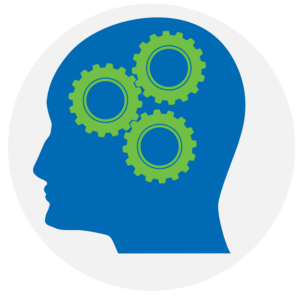Working toward mental wellness

Subscribe to Catalyst
Subscribe to get our magazine delivered right to your inbox
Related Articles
Subscribe to Catalyst
Subscribe to get our magazine delivered right to your inbox
Related Articles
The Working Mind training goes virtual
If there was ever a need for crisis training, it was during the onset of COVID-19. That’s one reason the Mental Health Commission of Canada (MHCC) stepped into the breach by offering virtual training to more than 5,139 essential workers, who took over 574 courses between April and October.
Now, the MHCC has expanded its virtual offerings to include an updated version of one if its most popular courses — The Working Mind (TWM).
“TWM Virtual combines elements of the original TWM with virtual crisis training to create one complete course,” explained Pauline Meunier, training and delivery specialist for the MHCC’s Opening Minds program. “It’s the best of both worlds.”
The evidence-based program was designed to initiate a shift in the way employees and leaders think and feel about mental health by addressing barriers to care, reducing stigma, and strengthening personal resilience. Each training module includes case studies, videos featuring people with lived experience of mental illness, reference guides, and practical handouts.
“Most adults spend two-thirds of their waking hours at work,” said Louise Bradley, president and CEO of the MHCC. “Now, with many workplaces operating remotely, I would argue that those hours are stretching. That’s certainly been my experience. So it’s more important than ever that employers have the tools to support their workers, especially since mental distress may be harder to detect when people aren’t working under one roof.”
One popular tool to help workplaces keep their finger on the pulse of employee mental health is the mental health continuum model, which highlights a spectrum of thoughts, attitudes, and behaviours associated with different mental health levels, from “healthy” to “reacting” to “injured” to “ill.”
For John Horne, vice-president of Safety, Health, and Environment at Nutrien, it’s been invaluable. “The mental health continuum provides an accessible approach and common language for the organization to talk about mental health. TWM’s emphasis on teaching employees and leaders to focus on actions that can be taken early on the continuum ensures that we can be proactive in giving employees the support they need for their mental well-being.”
As a former paramedic chief, Meunier knows the value of prioritizing mental health in the workplace firsthand. “You never know who’s struggling. Many employees put their work first, at their own expense,” she explained. “If you aren’t investing in and supporting the mental health of your employees, it will cost you down the road — whether through loss of productivity or an inability to keep moving forward at work.”
 TWM Virtual offers a five-hour course for employees and a seven-hour version for managers. While both address similar topics — self-assessment, stress, stigma, and resilience — the manager’s course emphasizes the role leaders play in supporting their staff. Managers are given techniques to assist employees who may be struggling, including how to approach conversations about suicide.
TWM Virtual offers a five-hour course for employees and a seven-hour version for managers. While both address similar topics — self-assessment, stress, stigma, and resilience — the manager’s course emphasizes the role leaders play in supporting their staff. Managers are given techniques to assist employees who may be struggling, including how to approach conversations about suicide.
One organization that recognized the value in this skill set was Enbridge, which had arranged TWM training for leaders in its major offices before the pandemic hit. “At Enbridge, safety is at the core of everything we do,” said human resources specialist Lisa McCarney, “and that includes the psychological health and safety of our employees. We have now pivoted to virtual training, which allows us to reach leaders wherever they are working: whether in the major offices, at home, or in our smaller and more remote locations.”
As with the traditional TWM programs, TWM Virtual is based on scientific evidence and is subject to rigorous pre- and post-evaluation outcome measures. Course instructors are also held to a high standard, undergoing extensive training not only to deliver the content effectively, but also to create the safe environment needed to foster open conversations about mental health.
“What sets TWM Virtual apart is the high level of care for participants,” said Charles Boyer, manager of business development for the MHCC’s Opening Minds and Mental Health First Aid programs. “Throughout each course, moderators pay careful attention to make sure participants are doing well, opening up virtual breakout rooms whenever they are needed. We want participants to feel safe, comfortable, and engaged.”
For Meunier, the message to employers who are considering the training is simple. “Investing in the mental health and well-being of employees is crucial to the overall health of your organization. Whatever you invest today, you’ll make back tenfold tomorrow.”
Amber St. Louis




